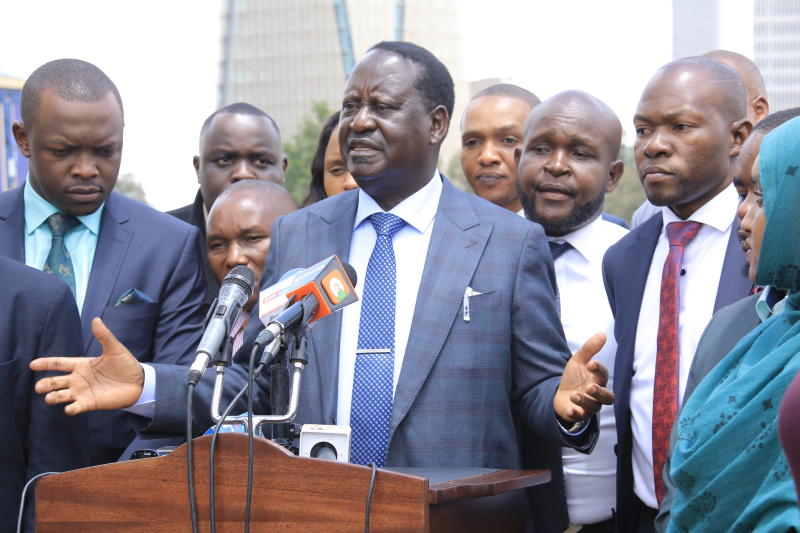×
The Standard e-Paper
Stay Informed, Even Offline

Opposition leader Raila Odinga has maintained that the governance structure must be altered to find a lasting solution to issues bedeviling the country.
Raila said there was need to re-look the governance structure and see what works best for the country, warning those opposed to review of the supreme law that change would catch up with them.